Education in the liberal era emphasised ideas, with people thinking that we are in a battle of ideas, as if ideas rule the world. In actual fact the world at a Global and local level is run by rich power groups. Power groups are changing our towns and cities into something different and separating us from our culture and history. These are being made un-British. Local councillors stand for election and promise benefits to the local community. If elected they act as agents for corporations and finance. The new buildings in London are financed by money from other countries and built and designed by global corporations using imported labour while our people remain unemployed.
We are educated to be unrealistic and naïve. We are encouraged not to judge others, but the way to live safely is to assess human nature and make judgements on the suitability of others as friends or people we do business with. We are told it is prejudice to decide who to associate with, but making such decisions is essential human wisdom. To neglect this is to open oneself up to being harmed or taken advantage of.
Running a family is a practical activity, as is running a nation. The use of concrete nouns instead of abstract ones would effect how people think and would return them to reality. The abstract way of thinking was brought in by the French Revolution and has led people out of the world of reality into the realm of fantasy, because the words they think in have no substance. This is why immigrants, for instance, are thought to be the same as us, but if you believe they share the same basic human nature with us, then immigration is alarming because they are taking over our territory as earlier invasions have done.
It is their human nature to do so, as it was ours when we were in their countries. The mode of entry is not the point. The point is that, once in a country, human nature decrees that a people start claiming territory and that includes women. The widespread raping of young White girls some as young as eleven and twelve (and some Indian and Black) by the rival Muslim community is for them the taking of the spoils of war. The police and social services have been covering these child-rapes for years. They can not face the fact that their imported pets are not bringing us benefits and enriching our culture.
The use of concrete nouns instead of abstract ones would have an immense effect on how people think – it would bring them back to reality. The French Revolution and its abstract way of thinking have led people from reality into fantasy, because the words they think in have no substance.
When a world view becomes dominant it marginalises the opposing view, and that is what has happened to traditional or national conservatism. Another complication is that new Liberalism is different from Classical Liberalism. Liberalism was replaced by Cultural Marxism in the late 1960s. They kept the name but changed the content so that there were two Liberalisms – Classical and New. New Liberals changed the nature of the ideology into what we now see as Identity Politics and Political Correctness. For example, individual rights became group rights, and that worked against us, as we are "oppressors" and the immigrants are "victims."
The Progressive way of thinking that stems from the Enlightenment marginalizes traditional systems in favour of a way of thinking that disdains the past and looks forward to a future perfection. Progressives think that we are ineluctably destined for the brotherhood of man – an obvious Utopia! This is no more than an irrational superstition, and any examination of the world around them would show that the opposite is happening. They think human nature is malleable and can be re-fashioned to fit into their ideology and future utopia.
A formal ideology is written down like a "How to" book, which tells people how to think and behave. Ideology grew out of the Enlightenment as a secular replacement for religion with a programme of correct thinking and behaving, and with intolerance for deviation. The rulers changed from an aristocratic class, based on blood and land, to a secular elite defined by their ability to think and say the right things – in other words an "Ideological Caste."
Ideological thinking starts with first principles and requires underpinnings to support or justify beliefs. Conservatism by contrast is a view of the world that grows out of our emotional bonds with our families and expands outwards through neighbourhood and community to the nation. It emanates out to Europe and the Anglosphere, though weaker. For example, we feel for the South African Boers in these days of their genocide. It is stronger at home, and a parent who wishes other children to do better than their own is perverse.
The Ideological uses of language
The elites try to change people's thinking by changing the vocabulary: the British government guidelines to the media suggest certain words about non-white crime be replaced. The words to be suppressed included immigrant, illegal immigrant, illegal asylum seeker, bogus asylum seeker, non-white, non-Christian, mixed race, half-caste, mulatto. There is the substitution of euphemistic terms for those that reflect reality, as in the official designation of Anti-Islamic activity for Muslim terrorists.
The use of Political Correctness is a way of training people to think of, and to perceive, reality in the official way. If you think differently you are a "hater," a "racist."
Ideological change of the meaning of words passes for common usage as people innocently adopt them: bigot and tolerance are prominent examples. Bigot means one who refuses to listen to the opinions of others but is misused as a connotative word that only applies to "right-wingers." A classic example of this Doublespeak was during the 2010 general election campaign when Gordon Brown described a woman who asked him about imported labour as a bigot; but he was the one being bigoted because he refused to listen to her opinions! Tolerance meant to tolerate an action or to put up with something one did not like, but is now misused to make indigenous British people passive and accept being replaced by immigrants.
We need a concrete, definite vocabulary, not vague linguistic terms like person and humanity, but terms like Englishman or Englishwoman, Welshman or Welshwoman, Scotsman or Scotswoman or Irishman or Irishwoman, boy and girl; land rather than country. They are more specific and convey a solid idea of substance; they get away from the woolly vocabulary that is a cause of our collective loss of touch with reality. This would clarify what we are referring to and make our common intercourse more realistic.
The great Welsh national anthem Land of My Fathers is a pertinent example as it makes a clear statement of debt to ancestors and suggests the piety necessary to honour what the ancestors have left us, and our obligation to hand it on to our descendants. This is embodied in the Fifth Commandment to honour thy mother and father; unless they are very cruel parents, of course.
On abstractions, the counter-revolutionary Josef de Maistre stated:
"there is no such thing as Man in the world. In my lifetime I have seen Frenchmen, Italians, Russians, etc... I declare that I have never in my life met him; if he exists, he is unknown to me."
Brainwashing
A television programme Gypsy Wars contrasted a local woman with tinkers who had invaded her land, and effectively reversed the roles. The intellectual and media elites think our traditional view of the world is pathological and try to correct it for us. No young Gypsy men were shown, because they would be aggressive, and the programme makers did not want to show them as a threat; village life was not shown because that is appealing and viewers would sympathise with the woman; the woman was selected because she is not typical of rural people but was a bit eccentric and could be set up as the aggressor even though she was in fact the victim. This role-reversal was undertaken to mould the public's views and change attitudes. This was an example of how television re-structures thought in accordance with the establishment’s Progressive ideology.
In August 2011, police closed the largest gypsy camp in Britain at Dale Farm and the biased television news reports once again left gypsy men out of their news reports.
For years vacancies in television were only advertised in the Bourgeois-Socialist Guardian newspaper to help filter out applicants with the wrong attitudes.
We are derided as prejudiced if we protest against the elites having us dispossessed, which is used to mean ignorant and narrow-minded, but prejudice is in fact traditional wisdom passed down by our ancestors, and is knowledge which is much broader-based than the narrow solipsism of the contemporary era. It saves us learning the hard way, and we would have been spared this dispossession if natural prejudices had been followed after the last war.
The great Conservative satirist Michael Wharton would have recommended Prejudometers.
We are being dehumanised and made a non-people. We must abandon this inculcated niceness, this apologetic approach and assert ourselves. We need to give our people a sense of their collective worth for the common good, and succeeding generations need to be built up to inherit the responsibility for our life and culture. The media are occupying them with trivialities like what to wear, how to get your hair done and where to have a tat! It is done to get their money, and is morally evil, as they are being debauched by temptations and distractions.
Government from Brussels, economic control by global corporations, and Afro-Asian colonization is part of the progressives’ new dream for an ideal future, but in practice it disinherits our children of community and association with their own kind, which we are duty bound to preserve for them.
Throughout history wars have been fought for territory, and by allowing newcomers to stake claims, our emasculated 'elite' are encouraging them to fight for yet more. Our rulers are handing our ancestral homeland to invaders and protecting their welfare over and above that of their own people.
MPs also want children taught how to have relationships and make "informed decisions" about when to have sex. Propagandising homosexuality is another threat to our demographics.
A world view to unite us
How do we counter the dominant ideology? The way to develop a new world view is to gather examples from the world around us, of what is really happening as a result of, say, immigration, collate it and form our version of reality. The first thing is to understand human nature and what people are capable of doing to one another. We also need to consider what gives life meaning, and this leads to the idea that nationalism is about our nation and a nation means a group of racially linked people with whom we belong by emotional attachments. I openly admit to being a racialist because I believe in racial differences between people, but do not hate other peoples and do not accept the Marxist pejorative term "racist."
Power groups are changing our towns and cities into something different and separating us from our culture and history. We must not endlessly rehearse what has come to pass but what we are going to do. How will people cope in the social disorder the elites are plunging us into.
We have a responsibility for our kin and a duty to them. We have a duty to pass on what we have inherited to our children, as they, in turn, will have a duty to their children. We owe a debt to our ancestors who bequeathed to us our nation and culture and we must honour that.
The elites promote a version of progress and see the past as obsolete. But the present grows from the past as the future grows from the present, which is why we have to get things right now, in the beginning of our revival.
The attitude of those who control public life is to transfer power away from their own people and disinherit their descendants for the benefit of rival communities. We are morally obliged to put our people first, as we do with our families, even when foreigners are more in need of help. Supporting outsiders against our own people is morally wrong.
We have natural bonds with our families, a responsibility for them and a duty to them as we have a duty to pass on what we have inherited to our children, as they, in turn, will have a duty to their children. This extends to our fellow nationals who share the same ancestral descent. We owe a debt to our ancestors who bequeathed to us our nation and culture, and we must honour that.
A people need the numinous things in life – religion, art, culture, a wholesome countryside. The numinous is a feeling of, and a need for, the sacred, the holy, and the transcendent; not just the material and the hedonistic.
Simple people say, "So what? It doesn’t matter if different people take over!" This shows a failure to understand human nature. They think it will be painless, like handing the baton on in a relay race, but examples from history like the Norman Conquest, show the oppression the conquered have to endure; other countries like South Africa and Zimbabwe show what will befall our children if the evil elites are not countered.
The ideology of multi-racialism was a righteous reaction to the opening of the camps and the watchword was, "It must never happen again." This has come full circle and now the Jews are being persecuted in France, Sweden and elsewhere by imported Muslims. Everyone must have seen Muslims brandishing placards that read: "God Bless Hitler" and chanting "Jews to the gas!" They must know that The Protocols of the Learned Elders of Zion is on sale in Muslim shops all over not only England but Europe. I have written elsewhere and repeat it here: if David Cameron and Ed Milliband and the other fantasists succeed in getting Turkey into the EU the number of Muslims will be so large that the EU forces will not be able to protect European Jews from, I dare say it, possible extermination. This has been imported by the elites who are not facing the reality of what they are doing.
Unlike the rational ideologies that have been manifold since the Enlightenment, our views derive from an emotional and instinctive relationship with our people and our territory. It is more profound than rationalising an ideology to be learnt from a book because it grows from natural, human instinct and emotion.
To give favourable treatment to aliens over our own people is morally wrong. A nation’s manners, morals, religions, political institutions, and social structures, are inherited from its ancestors and our loyalties begin with affection within families and this emanates outward to neighbourhood and nation. We belong to our kin, above strangers.
Look at data from the Office of National Statistics (which doesn't take into account the births to mothers born here), then look at your children and ask yourselves: "Am I betraying my children? Where will they live and work?"
Recommended Reading
A conservative classic: The Quest for Community by Robert A.Nisbit
For the New Left's takeover of Liberalism: The Politics of the Forked Tongue by Aidan Rankin
For Ideology: Suicide of the West by James Burnham.
For the conservative interpretation of history: Anything by Keith Feiling
In Defence of the Natural Society by David Hamilton
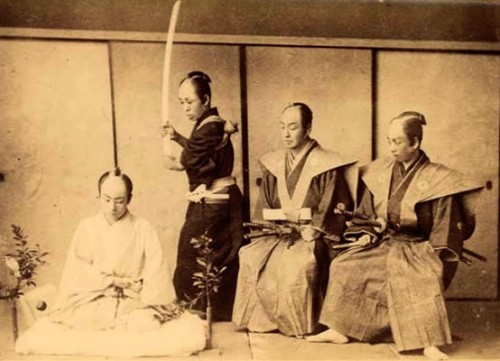



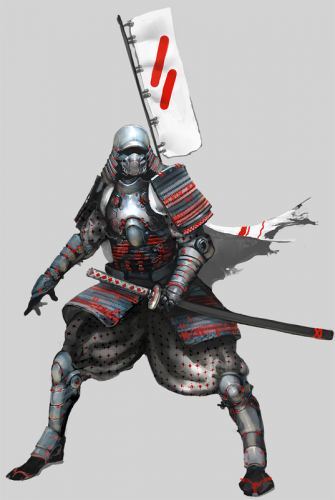

 del.icio.us
del.icio.us
 Digg
Digg
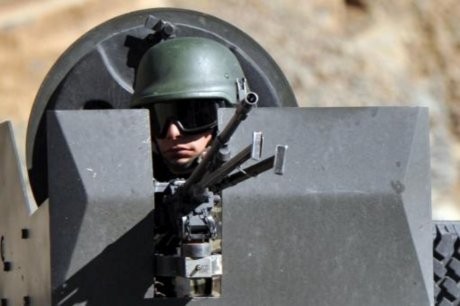
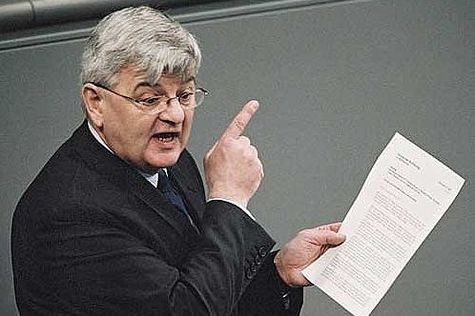
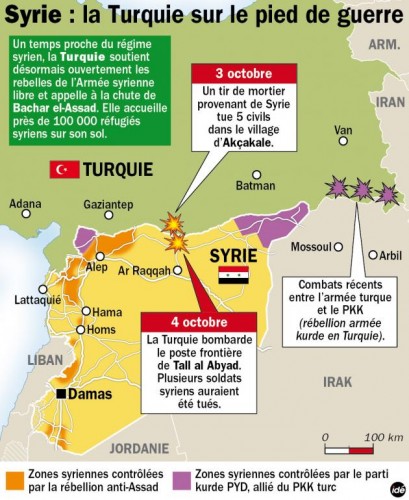
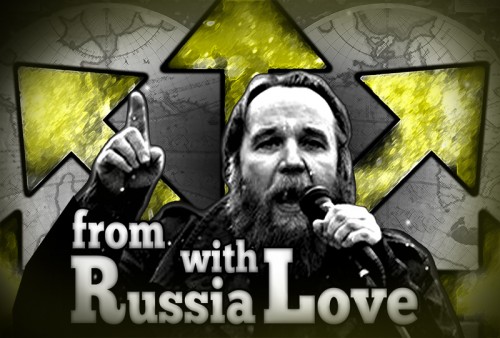
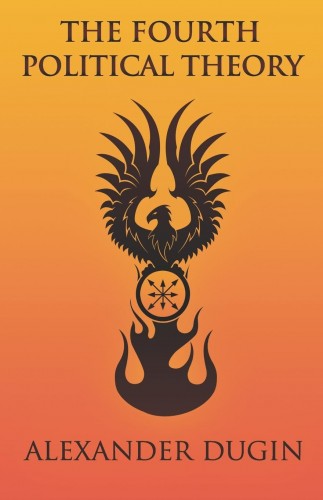 Despite past attempts by the Second and Third Theories to claim the crown of modernity, Dugin believes that Liberalism has triumphed here and has managed to irrevocably present itself as the only truly “modern” way. It has also succeeded in presenting itself as the “natural order,” rather than a mere ideology.
Despite past attempts by the Second and Third Theories to claim the crown of modernity, Dugin believes that Liberalism has triumphed here and has managed to irrevocably present itself as the only truly “modern” way. It has also succeeded in presenting itself as the “natural order,” rather than a mere ideology.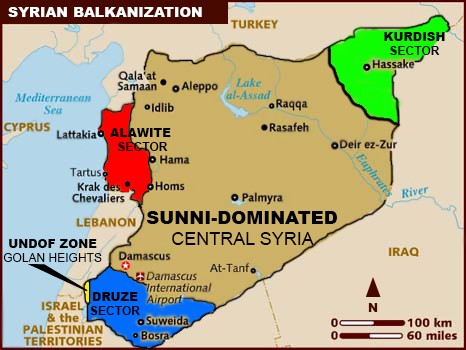
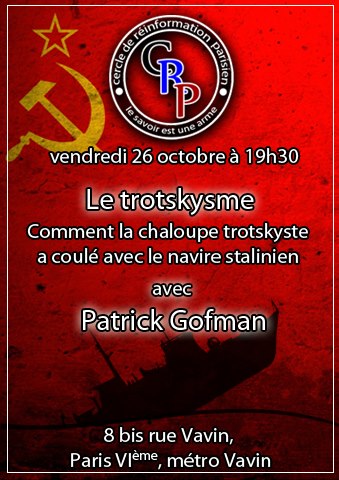
 Jacques Ellul, l’auteur du Système technicien et du Bluff technologique, disait qu’il lui devait tout. Il y a peu, on a parlé de
Jacques Ellul, l’auteur du Système technicien et du Bluff technologique, disait qu’il lui devait tout. Il y a peu, on a parlé de 





